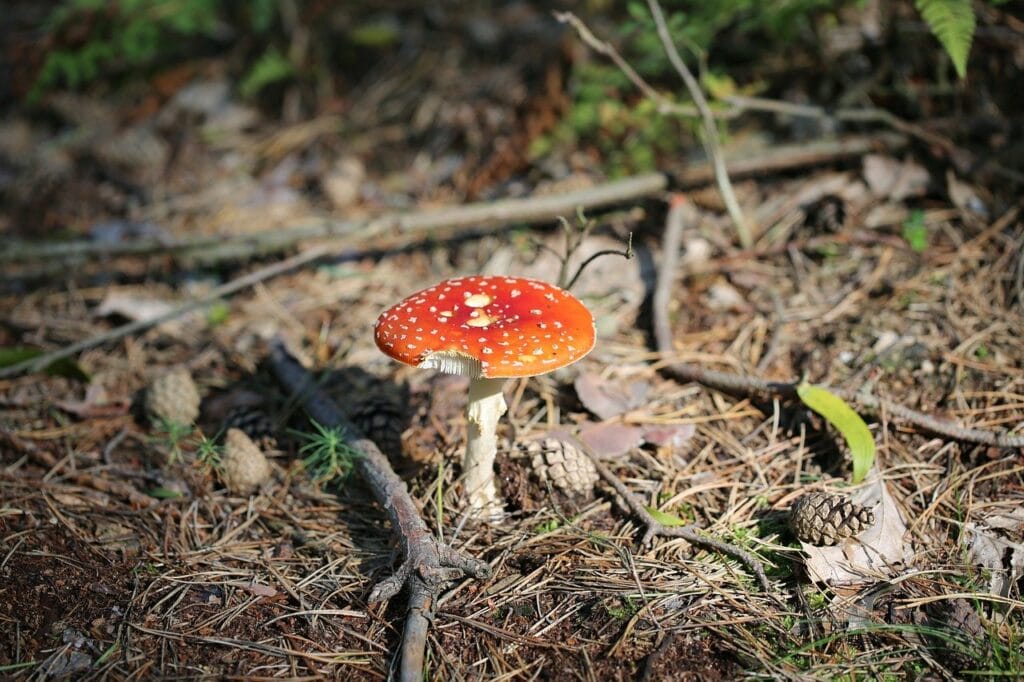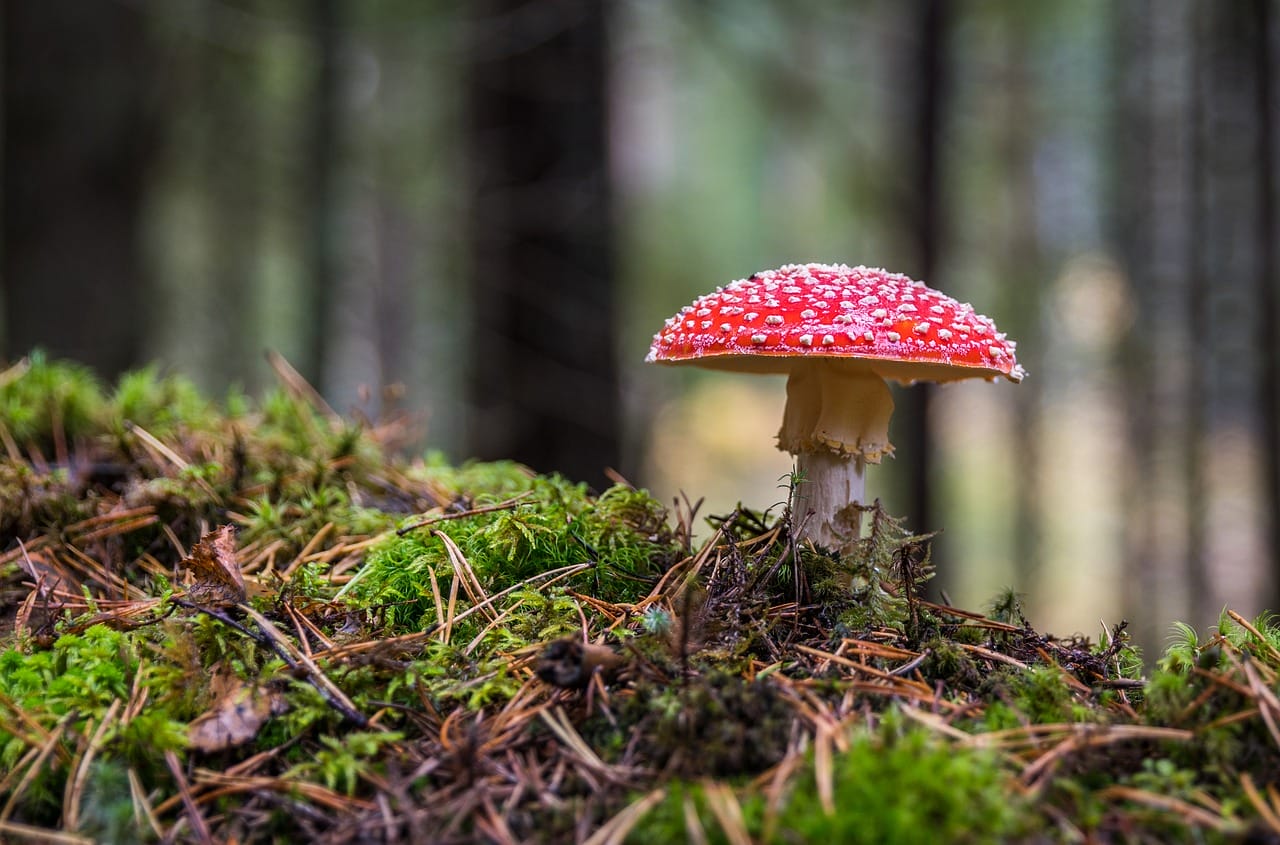For thousands of years, humans have identified and utilized the psychedelic properties of certain plants and fungi.
Fungi, especially magic mushrooms, are recognized as the primary natural sources of psychedelic substances.
Psilocybin, a psychedelic substance derived from mushrooms, has a notable historical significance. It has been used in religious ceremonies and therapeutic processes.
Many researchers are working diligently to explore the potential health benefits of shrooms online. Current studies have shed light on the effects of psilocybin mushrooms. These insights offer hope to many, thereby underscoring the need for a conversation about integrating them into Canada’s healthcare system.
Key Points:
- Magic mushrooms, which contain the psychoactive compound psilocybin, have several potential benefits for managing mental health issues in Canada.
- Psilocybin is safer and has a lesser risk of addiction and toxicity compared to opioids.
- Psilocybin has shown long-term efficacy in treating depression, with effects that can persist for up to a year.

Understanding Psilocybin
Psilocybin, an indole-alkylamine (tryptamine) obtained from magic mushrooms, has structural similarities with lysergic acid diethylamide (LSD). Its effects are hallucinogenic and euphoric, likely due to its interaction with serotonin (5-HT) receptors within the central nervous system.
Given its interaction with serotonin receptors, premium magic mushrooms show a particular potential to aid in managing mental health disorders.
Canada’s Mental Health and Opioid Crisis
Prevalence of Mental Health Disorders in Canada & Resistance to Treatment
| 2012 | 2022 | |
| Major Depressive Episodes | 4.7% | 7.6% |
| Generalized anxiety disorder | 2.6% | 5.2% |
| Social phobia | 3.0% | 7.1% |
| Alcohol use disorder | 3.2% | 2.2% |
More than a third (36.6%) of individuals struggling with mood, anxiety, or substance use disorders have reported their healthcare and mental health needs as either unmet or inadequately met.
An investigative article from the Canadian Journal of Psychiatry shed light on the attitudes towards seeking treatment among patients suffering from depression. The research delved into 1282 patient records from 135 practitioners. It identified 263 patients with treatment-resistant depression (TRD), translating to a prevalence rate of 21.7% across Canada.
The Opioid Crisis
Chronic pain affects approximately 8 million Canadians, or one in five. If not managed properly, chronic pain can negatively affect various facets of an individual’s life.
Healthcare professionals occasionally recommend the use of opioid medications for managing pain. While opioids can provide benefits such as pain relief and improved functionality, they also carry potential risks.
Between January 2016 and March 2022, there were at least 30,843 recorded deaths in Canada related to opioid toxicity. The majority of these tragic events happened in early 2021, with a staggering 5,368 cases reported. It’s important to note that over 88% of these incidents occurred in the provinces of British Columbia, Ontario, and Alberta.
Observations on Major Depressive Episodes
A study published in the Journal of Psychopharmacology enlisted 27 individuals with a long history of depression. Most of these participants had been dealing with depressive symptoms for approximately two years before joining the study. 88% of these individuals had previously been prescribed traditional antidepressants, and 58% were currently using such medications during their depressive episodes.
The study observed significant reductions in depression following psilocybin treatment for both groups. Moreover, the severity of depression was found to be consistently low at the one, three, six, and 12-month follow-up post-treatment.
Studies on General Anxiety and Social Phobia
A case study published in the Croatian Medical Journal in October 2021 examined HTML:
The narrative revolves around a
A solitary 16-year-old boy, who was battling severe anxiety, social isolation, and declining academic performance, sought help at a mental health clinic. His situation was further complicated by a learning disability and an absence of motivation for schoolwork, making group therapy feel overwhelming and ineffective for him.
However, after undergoing three sessions of psilocybin therapy over the course of 18 months, significant positive shifts were noticed. He experienced a decrease in anxiety, improved his communication skills with peers and teachers, and began expressing his feelings more openly. He also became an active participant in group therapy and witnessed an improvement in his interpersonal relationships.
Alcohol Use Disorder Treatment
A recent clinical trial, detailed in a study published in JAMA Psychiatry on August 24, displayed the potential of combining psilocybin and psychotherapy as a treatment for alcohol use disorder. The progress of 93 patients diagnosed with the disorder was monitored over a period of 32 weeks.
Among the group that underwent psilocybin-assisted therapy (a total of 48 individuals), an impressive 83% decrease in alcohol consumption was observed within eight months of their initial dose, in comparison to a 51% reduction in the placebo group. Almost half of the participants who received psilocybin therapy ceased drinking entirely.
Addressing the Opioid Crisis
Elena Argento, a postdoctoral fellow at the University of British Columbia and BC Centre on Substance Use, is currently studying the medicinal applications of psychedelics.
Argento explains that psilocybin impacts addiction risks in two ways: it affects both neurobiology and psychology. She highlights the transformative experiences induced by psychedelics, characterized by profound awe and self-transcendence. These experiences often lead individuals to discover new meanings and goals in life, potentially causing behavior alterations, especially towards addiction.
In a recent longitudinal study led by Argento and the BC Centre on Substance Use, results showed a significant decrease in the likelihood of continued daily illicit opioid use among those who had recently or within the past six months used psychedelics.
Argento’s 2018 study also proposed that psychedelic use could act as a protective factor against the link between prescription opioid use and suicide risk.
A different study found associations between psilocybin use and a decreased risk of opioid use disorder. This prior research suggested a 40% lower risk of opioid misuse and a 27% reduced risk associated with opioid dependence over the over the past year due to the use of psychedelics.
Health Canada and Other Regulatory Bodies Should Examine Psilocybin as a Part of Canada’s Therapeutic Approach
Despite Psilocybin’s recognized potential benefits for Canadians’ mental health, its acquisition remains a challenge. Health Canada allows healthcare professionals to prescribe this treatment through the Special Access Program. However, the stringent rules of the program create a substantial barrier for many professionals and patients.
The therapeutic use of psilocybin-infused mushrooms could revolutionize mental health care in Canada, offering potentially transformative benefits. Psilocybin therapy presents an alternative to traditional, often less effective treatments like pharmaceuticals or opioid substitution therapy, with the potential for significant, lasting effects.
Evidence suggests that psilocybin therapy could provide enduring benefits, potentially saving patients considerable costs on ineffective treatments. Moreover, research indicates psilocybin’s relative safety, with low toxicity, minimal risk of misuse, and infrequent overdose incidents.
How Can Psilocybin be Purchased Online?
If Canadians face difficulties accessing psilocybin therapy, they can opt to buy magic mushrooms online to relieve their current circumstances. They can explore an array of magic mushroom products, from high-dose shrooms to microdose magic mushrooms.
High-dose shrooms encompass psychedelic mushrooms available in a variety of formats, such as dried magic mushrooms, edibles, or beverages, consumed for their hallucinogenic and therapeutic effects.
Microdosing magic mushrooms involves products infused with small amounts of magic mushrooms. These products come in capsules, shroom edibles, or shroom tea. Buying shrooms online offers an alternate route to subtly reap these mushrooms’ benefits. Shrooms Canada only offers top-quality magic mushrooms online, ensuring optimal quality.
Is Psilocybin a Good Fit for Canadian Healthcare?
Psilocybin is often misunderstood due to its recreational use. It’s important to note that psilocybin has a safer profile compared to opioids and other drugs commonly prescribed in healthcare environments.
There’s a growing body of evidence showcasing its potential benefits, similar to those of marijuana, in treating various mental health conditions. dimensions of reality.
Magic mushrooms have long been utilized in the wellness sector to aid mental health therapies and foster personal development.
What could be the possible risks and side effects of magic mushrooms?
Magic mushrooms can trigger a range of effects, both beneficial and harmful. These might involve hallucinations, modified perceptions, and mental changes. On the negative side, they could lead to nausea, dizziness, and in some cases, psychological distress. It’s crucial to treat the usage of magic mushrooms with prudence and respect, acknowledging the possible associated risks. Always consider consulting a healthcare professional before initiating any new regimen that includes magic mushrooms.
Is purchasing magic mushrooms online safe?
Purchasing magic mushrooms online can be secure, as long as you opt for a trustworthy source. It’s absolutely necessary to carry out in-depth research about the product, its brand, and the online dispensary before placing an order. Customer feedback, ratings, and reviews can be valuable indicators about the product’s quality and the service’s dependability. Always opt for dispensaries that prioritize customer safety, satisfaction, and offer secure modes of payment.
Is it possible to cultivate my own magic mushrooms?
Yes, it is indeed feasible to grow magic mushrooms at your home, which could be a rewarding experience. However, it demands specific conditions and a comprehensive understanding of the cultivation process. There are numerous kits and guides available online that can guide you through your cultivation journey. However, bear in mind that the legality of growing magic mushrooms differs depending on your location, so ensure you’re complying with your local laws and regulations.
Some individuals in the wellness community opt for a more balanced approach, consuming smaller portions of mushrooms to harness their benefits without inducing hallucinations.
Articles You Might Find Intriguing:





